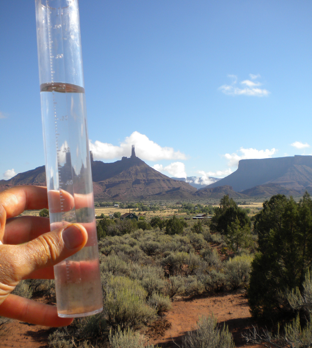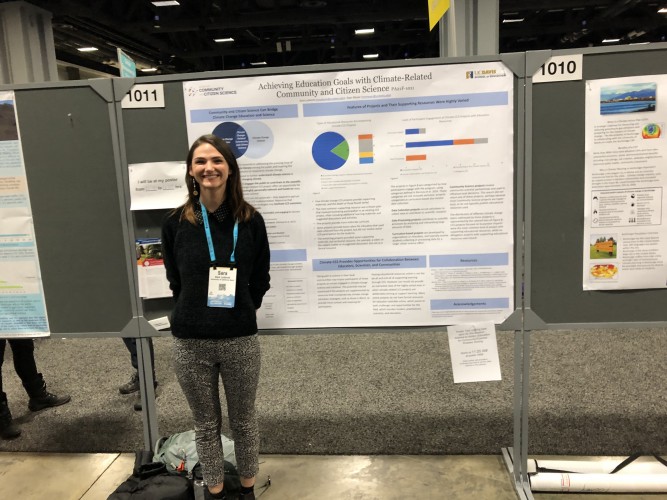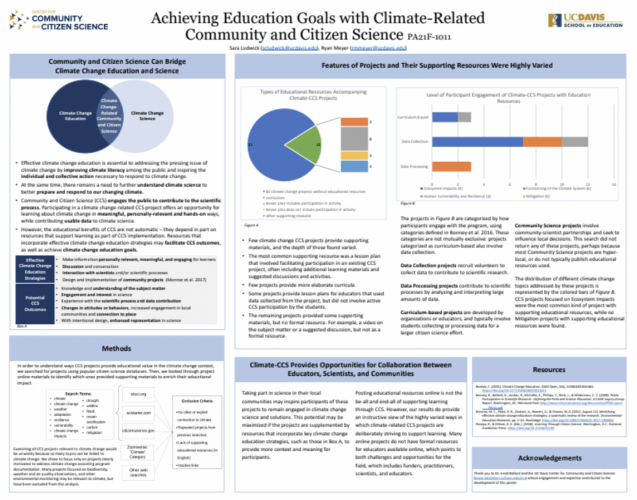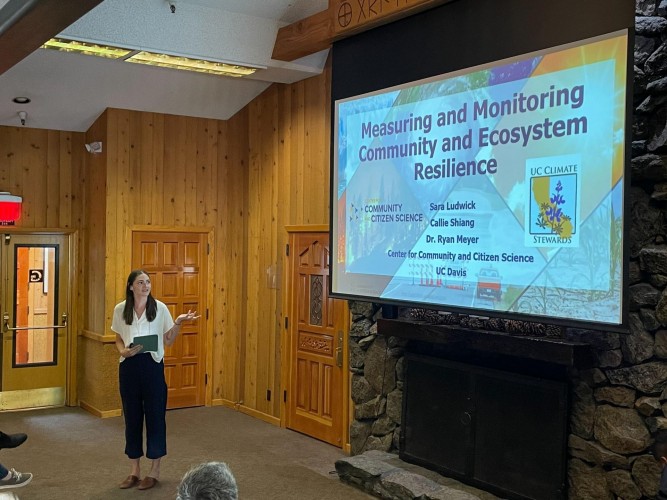CCS Climate Change and CCS
Project Update: Measuring and Monitoring Community Resilience with the Climate Stewards Program
The Center collaborated with UC Agriculture and Natural Resource’s California Naturalist program to offer an evaluation of a community resilience assessment tool used within the Climate Stewards course, and to identify community and citizen science projects that could support the program’s resilience efforts.
New Report: Evaluating Knowledge to Support Climate Action
 Governments and communities around
the world are working to reduce their carbon footprints and
mitigate the effects of climate change, but in some communities,
climate action plans are stalling. A new report, “Evaluating
Knowledge to Support Climate Action,” prepared by the
Independent Advisory Committee for Applied Climate Assessment
(IAC) with contributions from our Executive Director, Ryan Meyer,
examines what it would take to develop a dynamic assessment
process that helps affected jurisdictions, communities, and
organizations establish pathways for climate action. Its
recommendations are an important input to ongoing climate
assessment and research in the federal government and elsewhere.
Governments and communities around
the world are working to reduce their carbon footprints and
mitigate the effects of climate change, but in some communities,
climate action plans are stalling. A new report, “Evaluating
Knowledge to Support Climate Action,” prepared by the
Independent Advisory Committee for Applied Climate Assessment
(IAC) with contributions from our Executive Director, Ryan Meyer,
examines what it would take to develop a dynamic assessment
process that helps affected jurisdictions, communities, and
organizations establish pathways for climate action. Its
recommendations are an important input to ongoing climate
assessment and research in the federal government and elsewhere.
Sara Ludwick Presents Award-winning Poster at AGU
 Congratulations to Sara Ludwick,
whose poster at the AGU fall meeting entitled
“Achieving Education Goals with Climate-related Community and
Citizen Science,” received an Outstanding Student
Presentation Award! Read on for Sara’s reflections on the
experience.
Congratulations to Sara Ludwick,
whose poster at the AGU fall meeting entitled
“Achieving Education Goals with Climate-related Community and
Citizen Science,” received an Outstanding Student
Presentation Award! Read on for Sara’s reflections on the
experience.














